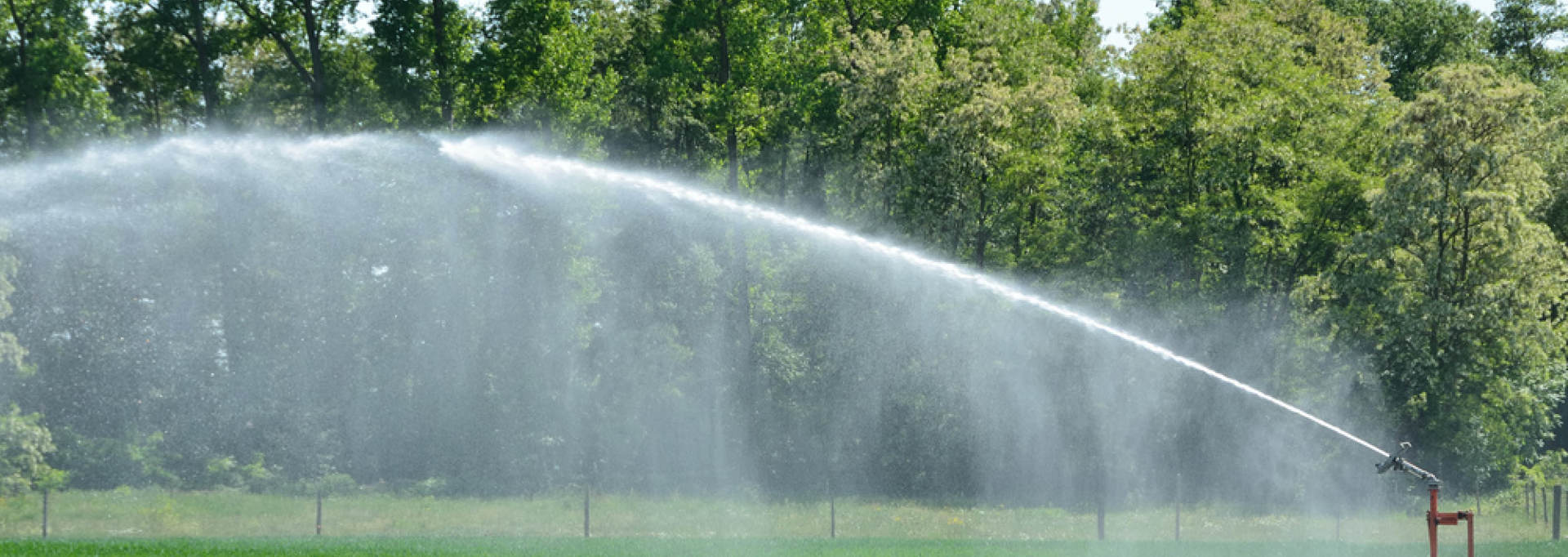The UK Irrigation Association Announces New Water Strategy
The strategy aims to increase the agricultural and horticultural sector’s resilience to drought and water scarcity risks by focusing on three themes.

The UK Irrigation Association announced the new irrigation water strategy at their spring conference at the beginning of March, attended by our Tamsin Morey and Rebecca Haw. The strategy aims to increase the agricultural and horticultural sector’s resilience to drought and water scarcity risks by focusing on the following three main themes:
- Managing irrigation ‘hot spots’ and forecasting demands
- Addressing regulatory and environmental challenges linked to a changing climate
- Working together to build resilience to climate and water risks
What are the aims of the strategy?
- Support economic growth and increase food security in the UK
- Secure a fair share of water and recognise that agriculture is an ‘essential’ use
- Protect appropriate levels of licensed headroom in future allocations for drought insurance
- Share risks and benefits in water supply investments by fostering multi-sector collaboration with the public supply, energy and environment sectors
- Increase water productivity (crop per drop) and water value in agriculture and horticulture
- Support knowledge translation to increase resilience to climate and water risks
- Drive innovation in precision water management to improve irrigation efficiency
Why is it necessary?
The production of high-quality fruit and vegetables in the UK is at threat from increasing competition for a limited resource. While the UK is perceived to have a wet climate, and many crops are dependent on rainfall, rainfall varies considerably across the country and the combination of low rainfall, appropriate soils for certain crops, and an increase in covered cropping results in the need for water resources to be managed more effectively and sustainably across all catchments.
The Irrigation Water Strategy is seen as part of the solution to securing a fair share of water for irrigation within the agriculture and horticulture sector. In addition to identifying water related risks and pinpointing priorities for future action, the strategy also seeks to prevent fragmented sector representation by working collaboratively with all the relevant stakeholders, so that agricultural demands are taken seriously in conjunction with the requirements of the public water supplies and other abstractors, while at the same time protecting the environment.
So, what do our experts think?
James Dodds, Envireau Water Chairman and a Water Management Specialist stated “the Irrigation Water Strategy is a key document, bringing the 1980 Strutt report up to date and putting the focus on modern irrigated agriculture and horticulture. It is critical that all stakeholders understand that irrigation is critical to modern food supply in the UK”.
Envireau Water has been heavily involved in the development of water resources policy through involvement in multi-stakeholder groups as well as by pushing the policy boundaries on behalf of clients, across a wide range of sectors including agriculture and horticulture.
Need help understanding or securing an abstraction licence? Get in touch with Tamsin Morey or James Dodds on 01332 871 882 or info@envireauwater.co.uk.







